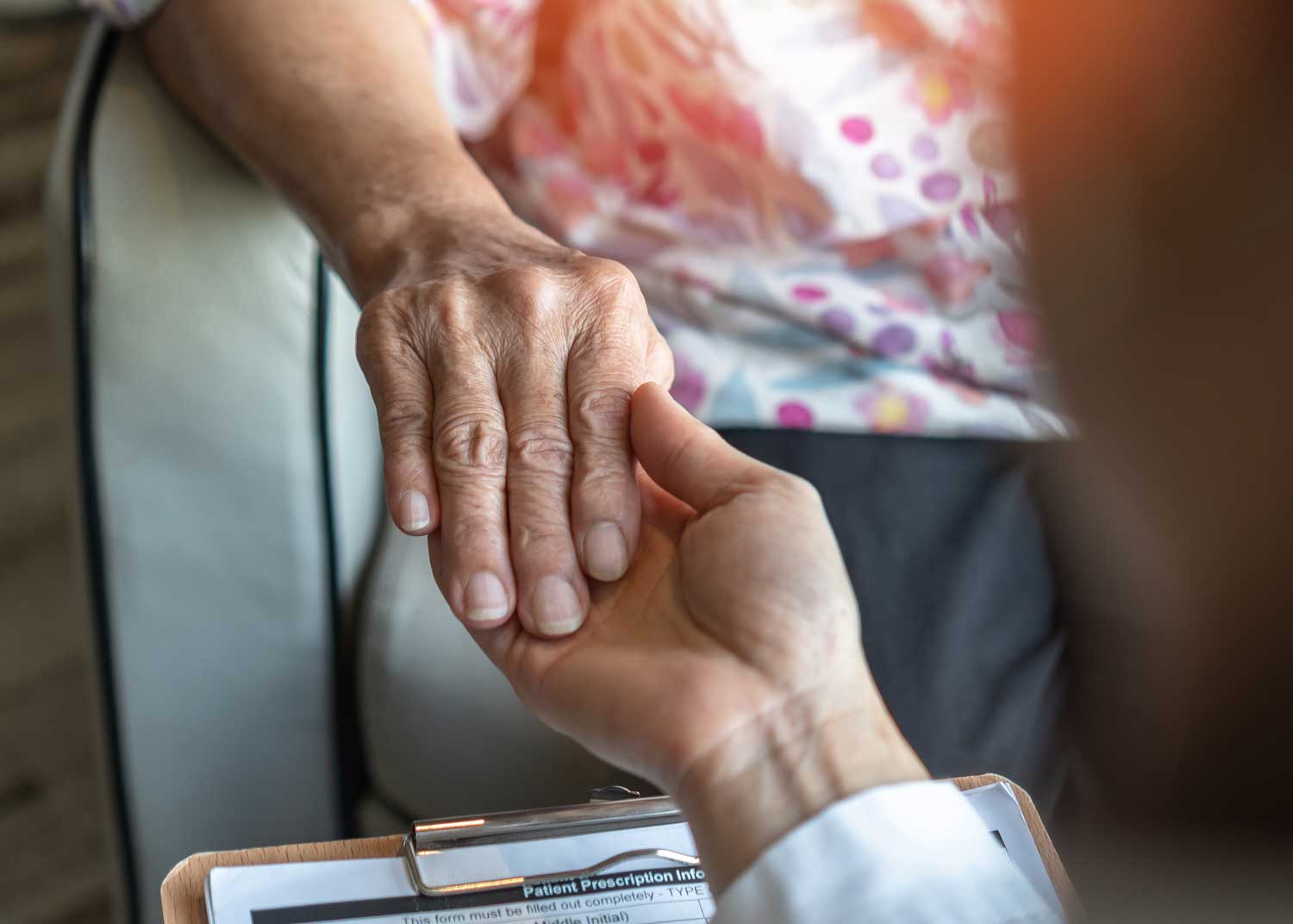Trauma Takes Its Toll at the End of Life
Clinicians should consider the impact of cumulative hardships when treating patients in their final years.

Repeating a school year, experiencing parental abuse or engaging in armed combat have far-reaching effects on the mind and body that may extend to a person’s last months.
These traumatic experiences can worsen the pain, depression and loneliness at the end of life, according to a study led by UC San Francisco and the University of Michigan.
“We found that early-life trauma in particular, especially physical abuse by parents, was strongly related to end-of-life pain, loneliness and depressive symptoms,” said senior author Ashwin Kotwal, MD, of the UCSF Division of Geriatrics and the San Francisco VA Medical Center.
“Traumatic events in childhood may have reverberating effects throughout the lifespan. They may play a role in social and emotional isolation, poor health habits and an increased risk of subsequent trauma,” he said.
These findings emerged from the Health and Retirement Study (HRS), which followed approximately 6,500 Americans over the age of 50, who died from 2006 to 2020. It appears on Oct. 1 in the Journal of the American Geriatrics Society.
The participants were asked to complete a questionnaire about their experiences with 11 traumatic events, as well as their psychosocial wellbeing. They were interviewed every other year until death, which occurred at an average age of 78. A final “exit interview” with a family member or friend with power of attorney provided information about symptoms in their last year.
Trauma “gets under the skin,” according to first author Kate Duchowny, PhD, MPH, of the Institute for Social Research at the University of Michigan, where the HRS study is conducted. “We know that trauma is associated with depression and anxiety, which may promote a pro-inflammatory environment that is associated with chronic conditions. If stress is persistent, it can lead to inflammation and adverse health consequences in later life,” she said.
Repeating a school year is common and leaves a lasting mark
The researchers found that 2 in 5 participants experienced childhood traumas, such as getting into trouble with the police and exposure to family members’ drug or alcohol abuse.
The most common potentially traumatic event in childhood was repeating a school year. The most common causes of trauma in adulthood were a life-threatening illness, or having a spouse or child with a life-threatening illness.
Connecting with a psychologist, chaplain or social worker may be what’s most effective in alleviating pain.”
Less common were the death of a child, having a partner with drug addiction, surviving a natural disaster or engaging in armed combat. More than 80% of participants experienced at least one lifetime trauma, and 1 in 3 experienced at least three.
Participants who reported no traumas were less likely to experience pain or loneliness when they were dying. They had a 46% probability of moderate-to-severe pain and a 12% probability of loneliness. For those who had experienced at least five traumatic events, these figures were 60% and 22%, respectively.
Depression was also markedly lower among the participants who hadn’t experienced trauma. They had a 24% probability of end-of-life depression, versus 40% for those who had been through five or more traumatic events.
“What this tells us as providers is that we should view a patient’s needs through a trauma lens,” said Kotwal, who is board certified in geriatrics and palliative care. “Near the end of their lives, people may experience ‘total pain’ – pain that may be spiritual and psychological, as well as pain from physical sources. Lifetime trauma may shape that total experience of pain. Connecting with a psychologist, chaplain or social worker may be what’s most effective in alleviating pain,” he said.
“We may learn that what underlies a patient’s suffering is not only disease-related symptoms, but the ongoing anxiety and distress that comes with experiencing a loss of control over one’s body,” said co-author Chelsea K. Brown, a social worker formerly with the UCSF Division of Palliative Medicine. “For a person who has also experienced trauma, this loss of control may serve as a reminder of previous harmful experiences, and this is painful to relive in so many ways.”
Other Authors: Alexander K. Smith, MD, MPH, Amy L. Byers, PhD, MPH, and Kristine Yaffe, MD, of UCSF and the San Francisco VA Medical Center; Irena Cenzer, PhD, and Carla Perissinotto, MD, MHS, of UCSF; and Grace Noppert, PhD, MPH, of the University of Michigan.
Funding: National Institute on Aging (K23AG065438, P30AG044281, K24AG062785, R00AG066846, R00AG062749) and the Department of Veterans Affairs (IK6 CX002386).
Conflicts of Interest: Kotwal and Perissinotto report consulting fees from Papa Health.